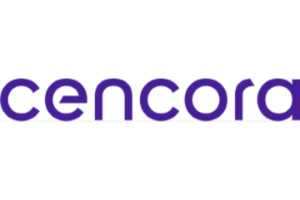SPONSORED CONTENT
Federally Qualified Health Centers (FQHCs) play a critical role in delivering accessible and affordable healthcare to underserved communities. However, they are facing mounting challenges that threaten their ability to maintain operations and meet growing community needs. With limited infrastructure, evolving regulations, upcoming Medicaid cuts, drops in the insured population and declining federal grants, FQHCs must navigate an increasingly complex and challenging environment while striving to remain sustainable.
Facing an evolving landscape
Operating with minimal resources yet tasked with addressing growing community health needs, FQHCs find themselves at a crossroads. Federal grants, which have long been a lifeline for FQHCs, are becoming harder to secure. This has forced many centers to seek alternative funding streams while navigating tighter budgets. Critically important state-and local healthcare programs are also facing payment reductions, introducing new complexities and often requiring rapid adaptations to evolving policies.
At the same time, FQHCs are grappling with the difficulty of managing complex contract pharmacy agreements and manufacturer policy restrictions. These agreements necessitate careful evaluation to ensure they are cost-effective, compliant, and aligned with the organization’s mission. Identifying the right partners within the 340B program—whether Third-Party Administrators (TPAs), consultants, or wholesalers—presents another layer of complexity. Compliance pressures have also escalated with the implementation of the Drug Supply Chain Security Act (DSCSA), adding stress to already overburdened 340B teams.
Adding to these challenges are new guidelines impacting the cost of essential medications like epinephrine and insulin, requiring grantees to provide these drugs at or under 340B acquisition cost. These changes, coupled with cuts to grant funding, have created financial strain for many FQHCs, leading them to find new ways to maintain critical resources, with an increasing focus on investing in 340B programs as a sustainable solution.
Strong strategic partnerships
In light of these challenges, partnerships are quickly becoming vital to the sustainability of FQHCs. With shrinking resources and growing community needs, FQHCs are increasingly relying on their 340B programs to enhance patient care. However, these partnerships must be strategic, collaborative, and tailored to the unique needs of each FQHC to be truly valuable.
By fostering strong relationships with wholesalers, TPAs, and other stakeholders, FQHCs can maintain a successful 340B programs. Wholesalers play a critical role in addressing industry trends and providing essential support. For example, they can help FQHCs with transitioning to in-house, entity-owned pharmacies, and facilitate integration with TPAs to remain compliant. Additionally, wholesalers are uniquely positioned to deliver personalized solutions that meet the specific needs of each FQHC and the communities they serve, enabling greater operational efficiency and improved patient outcomes.
Setting your FQHC up for success
While significant challenges exist, FQHCs can take actionable steps to strengthen their operations and position themselves for success. Maintaining accurate information within the Office of Pharmacy Affairs Information System (OPAIS) is a critical first step. This effort ensures that records align with the bill-to-ship-to information stored with wholesalers, which is essential for compliance and operational efficiency.
Collaboration is another key factor. There are multiple stakeholders within 340B, including FQHCs, manufacturers, TPAs, consultants, government agencies and wholesalers. It is important that all parties work together to achieve the intent of the 340B program and create strong partnerships that uplift and support the mission of FQHCs. Open communication and shared goals can help streamline processes, optimize resources, and address challenges more effectively. Regularly reviewing and assessing partnerships is also vital to ensure alignment with the organization’s goals and to maximize the impact of the 340B program.
Staying ahead of compliance requirements is equally important. The DSCSA and other regulatory changes introduce new compliance demands that can be overwhelming if not proactively addressed. By staying informed and preparing for these shifts, FQHC teams can reduce stress and avoid potential pitfalls.
Empowering FQHCs together
Empowering FQHCs togetherFQHCs are essential to the health and well-being of underserved populations. However, they face an uphill battle in today’s healthcare environment. The success of FQHCs relies on collective efforts. By working alongside trusted partners, leveraging the 340B program effectively, and addressing challenges head-on, FQHCs can overcome obstacles and thrive in their mission to deliver equitable healthcare for all.

Felipe Moreno is Senior Specialist, 340B Grantees at Cencora. He can be reached at Felipe.Moreno@Cencora.com.



